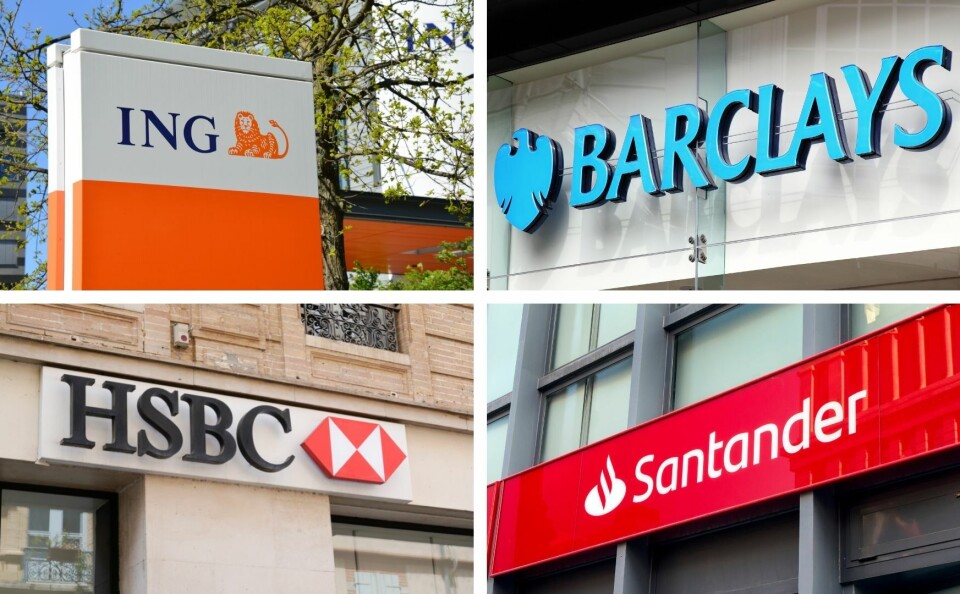-
French police issue warning over new ‘fake bank card’ scam
Accompanying letter asks users to set up new card using fake bank website and QR code
-
Senators examine proposal to guarantee access to cash machines in rural areas of France
Some 18.6% of French communes had access to at least one local ATM in 2024
-
Can small businesses earn interest on deposits in France?
Accounts in France are dominated by government-regulated products such as the Livret A and its higher-paying counterpart, the Livret d’épargne populaire (LEP)
Why did Barclays, HSBC and ING banks struggle to make money in France?
These global financial giants could not make enough profit to be viable in the French banking system. We ask a French finance expert to explain

Dutch firm ING’s sale of its French internet bank and reports that clients of Barclays France have been told they are not wealthy enough to stay with its new owners have highlighted challenges facing foreign banks in the country.
ING clients are being offered help to move to Boursorama, an online bank owned by Société Générale, apart from those with accounts judged to be ‘inactive’, which have already been closed.
Barclays, HSBC and ING found France tough
Barclays’ clients must have at least €100,000 to qualify to stay with its buyers, French private bank Milleis.
This entry level is seen as ‘democratic’ in the market, as most private banks require a quarter of a million euros.
ING and Barclays are not the only firms to have thrown in the towel recently.
HSBC ‘sold’ its French retail bank business to the American My Money Group, by paying it €1.6billion to take the venture off its hands.
The deal, to be completed by next year, will end a 20-year history in France, which started when HSBC paid €11billion for the long-established Crédit Commercial de France.
My Money Group says it will revive this brand.
French banking model different to foreign set-up
Thomas Rocafull, of financial analysts Sia Partners, said: “It is always very difficult for foreign banks to be profitable in France.
“This is particularly true of English-speaking groups, which are used to having high profit margins. They are disappointed when they see how much work they have to do here.”
The French banking model has long consisted of a few large co-operative banks competing with two listed giants, BNP Paribas and Société Générale. Analysts say this leaves little room for smaller banks.
“Competition for retail clients is fierce, which keeps prices low and makes it difficult for newcomers,” Mr Rocafull said.
An exception is the network of long-established small private banks, but even they are increasingly snapped up by larger ones.
Milleis recently bought Banque Cholet-Dupont Oudart, founded in 1784, which has many multi-millionaire customers.
By contrast, most clients inherited from Barclays France have ‘only’ a few hundred thousand.
Milleis would not confirm how many Barclays France clients have been asked to take their accounts elsewhere, saying the information is confidential.
Mr Rocafull said other European banks, including Spanish giant Santander, have also struggled to establish in France, despite success elsewhere.
“Another issue is that France has products unique to its regulatory system, such as the Livret A and other savings accounts, which need special accounting systems that newcomers have to build from scratch.
“And in property, most loans in France are from banks and at a fixed rate, which is rare elsewhere and also means they have to be managed differently.”
Other analysts say that, to do well in France, banks need to generate a maximum of commissions, on top of banking fees – by selling insurance, complex financial investments, and other services connected to finance, rather than just lending and managing accounts.
Online only ‘neobanks’ are having a go
France continues to attract foreign banks, in spite of the history of money lost in the country.
The latest to try their chances are ‘neobanks’ Revolut from the UK and N26 from Germany, which have both launched French-language versions of their mobile phone-based banks.
Read more: Is the money in neobanks protected the same as French bank accounts?
Even so, they have expanded fairly slowly here, partly because they compete with mobile banking offers from all main banks and the telecoms giant Orange.
Revolut takes advantage of EU open banking laws which allow it to show in its app details of users’ accounts with other banks.
French banks had fought against the measure, claiming it would compromise the safety of accounts.
French banks can close an account at any time with two months’ notice, which usually gives people time to open a new account, or to make use of a ‘right to an account’ process to obtain one, if turned down.
Remaining funds are returned, or in cases of long-inactive accounts, moved for keeping by state bank CDC.
Related articles
French bank won’t accept my UK mobile number to confirm purchases
Do French banks have age limits for credit cards?
How to open a joint bank account and how they work in France
























